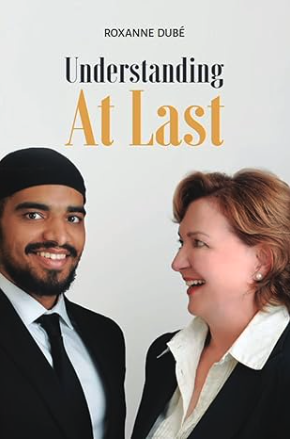The Achuar Dream Culture and My Mother’s Death Process
by Michelle Tomson (Turan), PhD, BCBA
It was my second week living in the Ecuadorian Amazon. I travelled by a 4-person Cessna 40 minutes into the first community, and then another 30-minute jungle flight into a second community. This was Achuar territory. This small community, which you could access only by plane or canoe had a distinctive open-air feeling, with a sunset that stretched beautifully along the Pastaza River. I felt immediately grateful and in awe of the silence and beauty after exiting the plane onto the dirt runway.
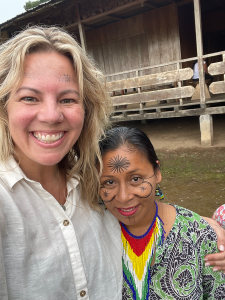 We were greeted by Veronica, a female leader, who welcomed us with a smile on her traditionally painted face. We were also introduced to Jose, one of the community leaders with a very strong, yet youthful presence. He was confident and fit the warrior-like description of his people. I could see how he could be perceived as intimidating, but he was also quick with a laugh and took his role as teacher and protector of the Achuar culture very seriously.
We were greeted by Veronica, a female leader, who welcomed us with a smile on her traditionally painted face. We were also introduced to Jose, one of the community leaders with a very strong, yet youthful presence. He was confident and fit the warrior-like description of his people. I could see how he could be perceived as intimidating, but he was also quick with a laugh and took his role as teacher and protector of the Achuar culture very seriously.
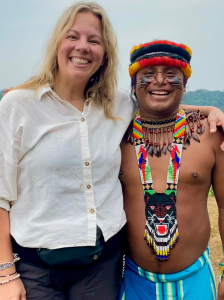 I was eager to learn from him and Veronica. My experience with them, as well as with others in the community, was profoundly impactful, but one area of learning was quite personal and deeply shifted me. This was the practice of dream sharing and Guayusa tea.
I was eager to learn from him and Veronica. My experience with them, as well as with others in the community, was profoundly impactful, but one area of learning was quite personal and deeply shifted me. This was the practice of dream sharing and Guayusa tea.
Before I left for Ecuador, my mom had been quite ill. We moved her into long-term care, as she had cancer that had spread to her brain, and she was not able to be independent any longer. During my visits with her, she experienced a great deal of confusion and emotional outbursts, and I would be there to try and bring her calmness or make her laugh. Leaving for the almost month-long trip did not feel like the best timing, and I grappled with conflicting emotions. However, I felt a pull towards this journey, sensing its significance for my growth and understanding.
As dusk descended upon the jungle, Jose beckoned us to join him in a sacred ceremony by the river. The men had started a fire and proceeded to cleanse us with smoke. They had mats for us to lie down upon as the dream ceremony was going to begin. Jose explained to us how much of the learning of the Achuar people has been passed on to them from their ancestors, and this knowledge has often come through their dreams. He encouraged us to take seriously the messages that come from our dreams, and then he asked us to lie down and shut our eyes.
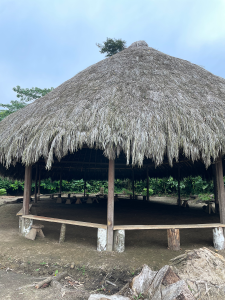 In the night of the jungle, with the sound of the birds and the smell of the river, Jose led us through a meditation that lasted approximately 30 minutes. I became very relaxed quite easily and some images passed through my mind’s eye. At the end of the meditation, he instructed us not to talk to one another, but rather to go straight to our rooms to sleep. He would be waking us up at 3 am, and he encouraged us to take note of our dream upon awakening.
In the night of the jungle, with the sound of the birds and the smell of the river, Jose led us through a meditation that lasted approximately 30 minutes. I became very relaxed quite easily and some images passed through my mind’s eye. At the end of the meditation, he instructed us not to talk to one another, but rather to go straight to our rooms to sleep. He would be waking us up at 3 am, and he encouraged us to take note of our dream upon awakening.
I fell asleep quite easily. Suddenly, there was this knock on the door telling us it was time to gather. We left our rooms in the darkness with only a headlamp to guide us through the jungle. We could see a fire in the distance, in the other gathering space the Achuar used to connect. We made our way into the space and my eyes slowly adjusted to the darkness.
As we gathered around a fire, I was startled by the presence of a majestic tapir, a gentle giant of the jungle. I was struck by the way it just wandered around, peacefully looking for snacks and seemed to pay no mind to us whatsoever. In front of us was Jose, his wife, and a baby sleeping on a hammock between two trees. We sat on wooden benches and some ladies appeared and began to hand each of us a wooden drinking vessel, shaped almost like a forearm-sized canoe. In front of us was a large pot with a steamy liquid inside. This was Guayusa tea. We were told that before talking, we were to begin using our vessels to scoop some tea and begin drinking. We were encouraged to drink rapidly and continue to refill our scoops until we had the desire to purge (i.e., vomit) the liquid into the forest.
When I brought the liquid to my mouth, I was a bit nervous, but the taste of the Guayusa was quite nice and warm and had just the slightest bit of sweetness. I began this process of scooping and drinking. Everyone in our small group looked nervously at one another to see who would be the first to make the purge. I believe Jose was the first and then one-by-one a person would get up, move to the perimeter of the forest, and purge their liquid. Eventually it came for me, and as I am a very reluctant purger, I was nervous, but it came up quite easily. The tapir happily followed each of us around.
As we returned to our seats after all were finished, Jose invited us to share our dreams. It was fascinating to hear of each person’s experience, some more elaborate than others, but all filled with useful information that Jose would interpret and provide feedback on. It was my turn, and I shared my dream as follows:
In my dream, I am at my mother’s house. I am there with my brother, and we are working outside. There are some dead plants, flowers, and garbage strewn all over her lawn, and my brother and I are trying to clean it up because we know my mom cannot come home until this is clean. She is waiting down the street in her oversized Dodge St. Regis ready to pull into the driveway when we get it all ready. That was it. That was my dream.
Jose proceeded to ask me a little about my mother and I told him what was currently happening. His interpretation was that I had been recently giving my mother gifts. I was cleansing her spirit from pain and suffering so that she could be free when she leaves this earth. This interpretation was very meaningful to me, as I had been trying to talk to her about seeing some of the pain in her life differently. I had been making jokes and suggesting that there might be other ways to think about things. We talked about the trauma of her parents, what their life had been like, how difficult it might have been for them, and other such conversations that were intended to free her from her occasional emotional prison.
Because of the dream ceremony, I realized the power of my presence; the gift of companionship and understanding that I could offer my mother in her final days. I found solace in the knowledge that our time together was not in vain, but rather a sacred exchange of love and compassion.
Leaving the Achuar community, I carried with me a newfound sense of purpose and gratitude. Their wisdom touched me in ways I could never have imagined, reminding me of the interconnectedness of all beings and the importance of preserving our shared heritage. As I reflect on my experiences, I am filled with a sense of reverence for the indigenous communities of the Amazon; guardians of ancient wisdom and stewards of the earth.
To learn more about these extraordinary communities and offer your support, I invite you to visit www.pachamama.org. Together, let us stand in solidarity with those who hold the key to our planet’s future, honouring their legacy and preserving their culture.
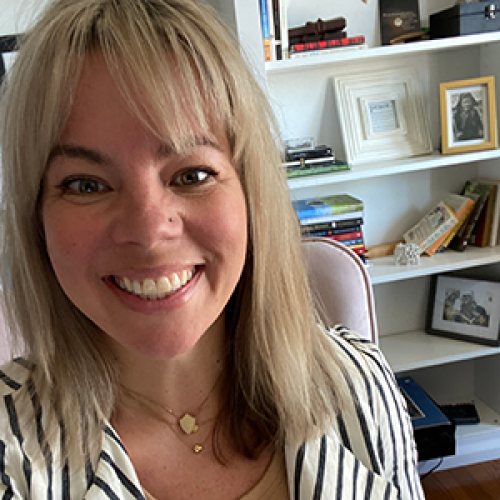
Dr. Michelle Turan
Dr. Michelle Turan, PhD, Board Certified Behaviour Analyst, Research Fellow and Professor has been working in the field of behaviour analysis for 20 years teaching and consulting internationally, with an emphasis on effectively changing behaviour to improve socially significant problems.



